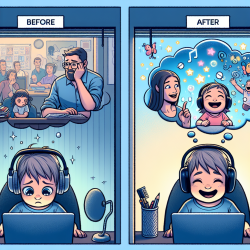The mental health of adolescents and young adults is a critical concern, particularly for those who are out of school and engaged in employment training programs. A study conducted in Baltimore, Maryland, between 2007 and 2008 sheds light on the challenges and opportunities in addressing the mental health needs of this population. This blog explores how practitioners can leverage the findings to improve their skills and interventions.
The Study at a Glance
The research titled The Mental Health Needs of Out-of-School Adolescents and Young Adults: An Intervention Conducted in Employment Training Programs, Baltimore, Maryland, 2007-2008, aimed to evaluate changes in depressive symptoms, coping strategies, and the use of mental health services among low-income African American adolescents and young adults. The intervention included an on-site mental health clinician, peer-led depression prevention sessions, and training for employment staff.
Key Findings
- No significant change in depressive symptoms or coping strategies was observed.
- The use of mental health services increased slightly but not significantly.
- Age influenced coping strategies; younger participants used active coping less frequently as they aged until 21.
- Participants with prior mental health service use were more likely to continue using these services.
Implications for Practitioners
Despite the lack of significant changes in depressive symptoms or coping strategies, the study offers valuable insights for practitioners:
- Tailored Interventions: Consider developing age-specific interventions that address the unique needs of different age groups within the adolescent and young adult population.
- Peer-Led Approaches: Enhance peer-led initiatives by ensuring peer leaders receive comprehensive training to effectively deliver intervention content.
- Integrated Services: Integrate mental health services into regular activities to normalize their use and encourage broader participation.
- Triage System: Implement a triage system based on baseline depressive symptom scores to provide targeted support where it is most needed.
Encouraging Further Research
The study highlights the need for alternative strategies tailored to the specific mental health concerns of young people in employment training programs. Practitioners are encouraged to engage in further research using quasi-experimental or experimental designs to better understand intervention effects. Collaboration with community partners can also enhance the development of more comprehensive interventions.
To read the original research paper, please follow this link: The Mental Health Needs of Out-of-School Adolescents and Young Adults: An Intervention Conducted in Employment Training Programs, Baltimore, Maryland, 2007-2008.










